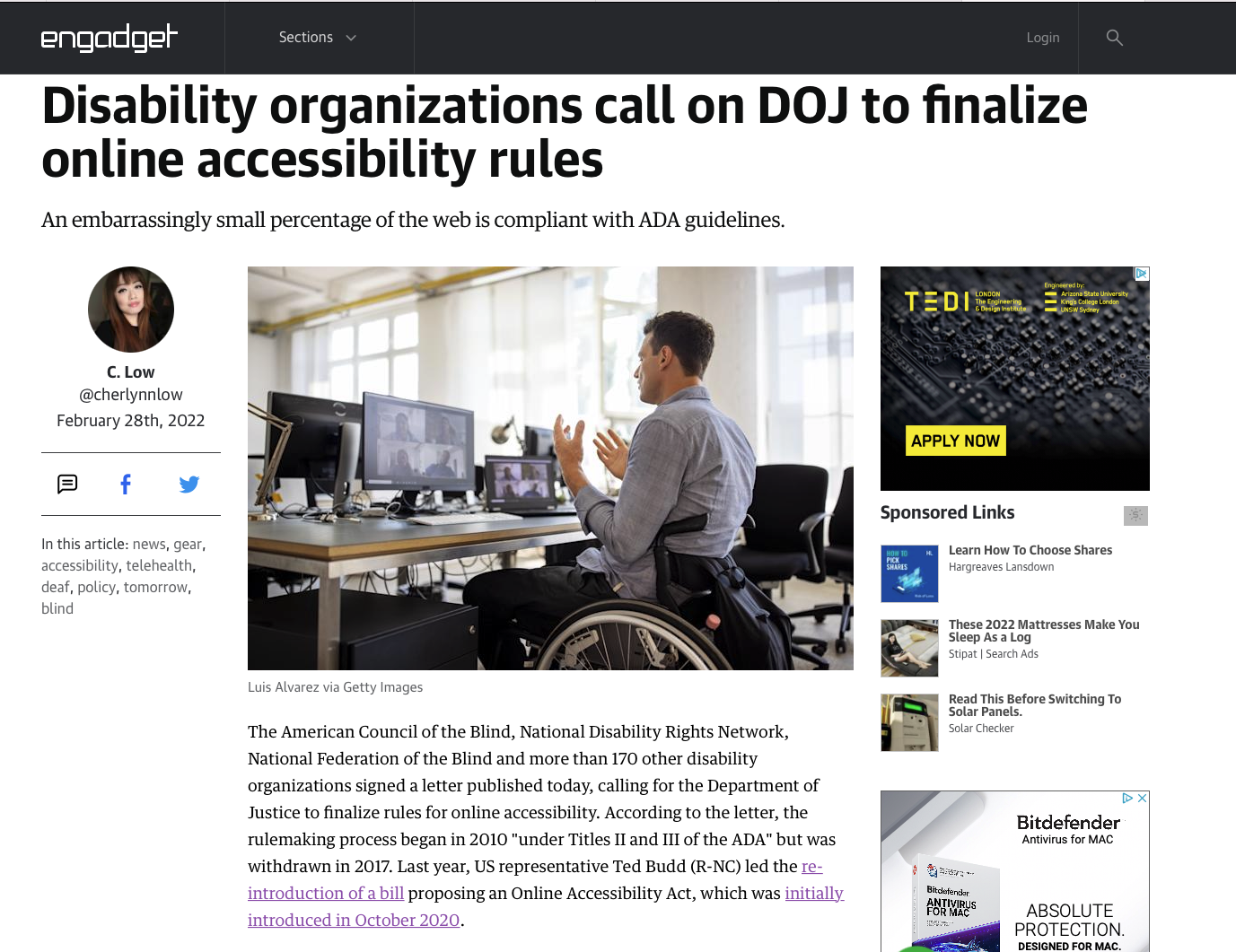Call on DOJ to finalize accessibility rules
Mar 03 2022
Disability organizations call on DOJ to finalize online accessibility rules
Disability organizations call on DOJ to finalize online accessibility rules
An embarrassingly small percentage of the web is compliant with ADA guidelines.
The American Council of the Blind, National Disability Rights Network, National Federation of the Blind and more than 170 other disability organizations signed a letter published today, calling for the Department of Justice to finalize rules for online accessibility. According to the letter, the rulemaking process began in 2010 "under Titles II and III of the ADA" but was withdrawn in 2017. Last year, US representative Ted Budd (R-NC) led the re-introduction of a bill proposing an Online Accessibility Act, which was initially introduced in October 2020.
In today's letter, addressed to assistant attorney general Kristen Clarke, the signees urged "the Department of Justice to maintain this rulemaking process as a priority and finalize a rule by the end of the current administration." It states that while the DoJ has held that the Americans with Disabilities Act (ADA) includes websites and other technologies critical to accessing a business' services, it has "failed to define when and how they should be accessible."
Extract // full article https://www.engadget.com/disability-organizations-letter-calling-for-online-accessibility-rules-215716138.html (opens in a new window)
Bill (PDF / Online Accessibility Act)
To amend the Americans with Disabilities Act of 1990 to include consumer facing websites and mobile applications owned or operated by a private entity, to establish web accessibility compliance standards for such websites and mobile applications, and for other purposes.
H.R.8478 — 116th Congress (2019-2020)
Introduced in House (10/01/2020) Online Accessibility Act
This bill sets forth requirements for consumer-facing websites and mobile applications owned or operated by a private entity and guidance regarding standards for website accessibility by the disabled.
Specifically, the bill prohibits the exclusion of an individual, by reason of disability, from participation in or being denied the full and equal benefits of the services of such a website or application or from being subjected to discrimination by a private owner or operator of such a website or application.
Such a website or application shall be considered compliant if it is in substantial compliance with the Web Content Accessibility Guidelines 2.0 Level A and Level AA standard established by the Accessibility Guidelines Working Group. A noncompliant entity shall provide an alternative, equivalent means of access by individuals with disabilities. The Access Board must publish related standards.
The bill sets forth provisions regarding administrative remedies and reporting of violations and enforcement by the Department of Justice and through private rights of action. https://www.congress.gov/bill/116th-congress/house-bill/8478 (opens in a new window)
Subscribe to AAAtraq and enjoy complete cover and peace of mind
